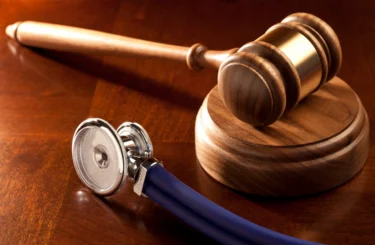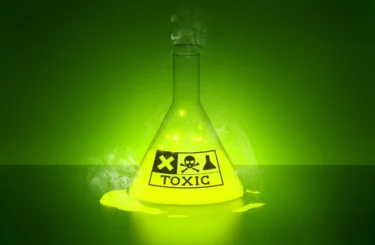Medical Malpractice and Negligence Cases Are On the Rise
Medical malpractice is considered to be either an act of professional negligence or an error made by any level of healthcare providers. Often, people assume that medical malpractice is only for a physician or surgeon, however any person can be held responsible such as the nurses, lab staff, etc. Malpractice is any act or treatment that does not meet the necessary standard of health care. Whether this means a doctor makes an error during surgery, a pharmacy hands out the wrong medication or anything that otherwise causes harm or death to a patient, is considered to be unethical and therefore medical malpractice.
These errors and poor care of patients is leading to many individuals having more severe illnesses, injuries and often, death. According to the Medical News Today, in an article published in 2004, they claim that there is an average of almost 200,000 people who die every year because of medical malpractice. The American Association of Justice states that there are nearly 100,000 deaths each year in more recent studies. What is even more shocking is that these studies show that medical malpractice injuries are the sixth leading cause of deaths in America today. The top five causes of death are heart disease, cancer, stroke, chronic lower respiratory diseases, unintentional accidents, and then medical malpractice; a death that could have been entirely preventable.
Heath Grades researchers discovered a very interesting statistic. They claim that medical mal practice cases are so common, that in the event a patient suffers any form of error or “safety incident” that there is a 20% chance that they will die as a result, or one in every five. According to the Joint Commission Center on Transforming Healthcare, every week there is around 40 cases in which a medical professional preforms what is called a “never event.” This category means that a doctor made an extreme error by either treating the wrong patient with another’s procedure or surgery, or the surgery is performed on the wrong side of the body. Wrong side or wrong patient errors are sadly very common, and this is not ok.
Since 2008, The Center for Medicare & Medicaid Services (CMS) took a stand against the medical malpractice trend in the hospitals. They decided to pull back their funding by way of not paying for the errors made within the hospitals. Now, each hospital is more responsible for the potential costs that result from a malpractice case, and the CMS hoped that it would result in a more careful focus to patient safety. Their goal was to save around $21 million in tax dollars a year because of this change. Unfortunately, nearly four years after this decision was made on behalf of the CMS, little has change in the world of medical malpractice, and hundreds of thousands of patients are being injured and killed each year.
What is so disheartening is the fact that medical malpractice is a daily concern, and despite the numerous lawsuits that are being filed, errors are still occurring and people are suffering as a result. When addressing medical malpractice or negligence cases, the main issues that kills the victims is not the actual error itself, but rather natural causes that result years down the road because of the original error. For example, a patient whose surgeon made an error, they may not die on the table but their body may have been so poorly affected that they are unable to bounce back after the procedure.
In an article written by Dr. Bruce Fagel, he shares another frightening medical malpractice statistic. According to the Institute of Medicine, they reported that there are around 1.5 million injuries as a result of medication errors made by either pharmacies or doctors. Medication errors are one of the top causes of injuries when addressing medical malpractice, whether it is the wrong prescription given, the wrong dosages, or other forms of contamination. A terrifying example of a pharmaceutical error is the recent meningitis outbreak that so far has seen 434 cases total and 31 deaths all because of contamination of a rare fungus at the New England Compounding Center.
Failure to diagnose is another leading error made by doctors, even when a patient is receiving a routine checkup, if their condition is not treated soon enough, or properly, the patient may suffer more severe injuries or death as a result. With the meningitis case, many patients were killed because the doctors were unable to locate the cause of their flu like symptoms. Something so subtle turned into a deadly infection that claimed many lives.
Anesthesia is a much needed medical aid when a patient is heading into a surgery or an otherwise painful procedure. This medicine allows the patient to be “put under” or placed into a painless sleep. Unfortunately, anesthesia errors are growing more and more common today as well. There can be complications with this treatment, for example a patient may receive enough anesthesia so that they are unable to talk or move, and yet their body is still experiencing the full pain or the procedure. Another concern is that if there is any mistake made when administering the pain medication, it can also lead to brain injuries and possibly even death.
Medical malpractice and negligence are much too common today, and action needs to be taken. If you or a loved one has been a victim of this, don’t wait another moment to take legal action. Contact an experienced Michigan medical malpractice lawyer today at Sommers Schwartz. In the past decade our firm has brought in hundreds of millions in recovery for our clients who have been victims of wrongful injuries. We understand how hard this time may be for you and your family, which is why our firm is committed to delivering a strong case as we fight whoever is responsible for your medical malpractice or medical negligence case. We will walk with you every step of the way in this legal process, hoping that as we handle the legal issues you will have a chance to begin the recovery from your painful situation. Contact us today for the aggressive attorney that you deserve, we are ready to fight for the compensation that is rightfully yours after an injury or death!
Robert B. Sickels
For more than 30 years, Robert Sickels has successfully represented plaintiffs involved in complex personal injury, medical negligence, and products liability matters.





